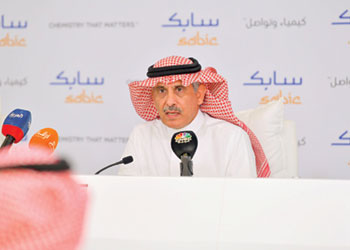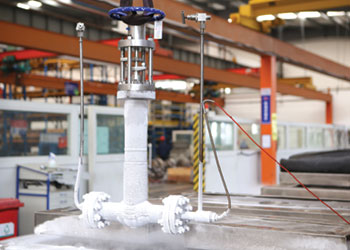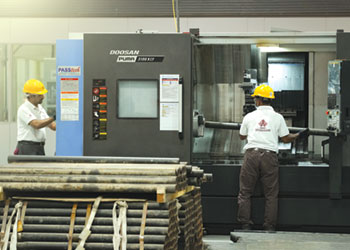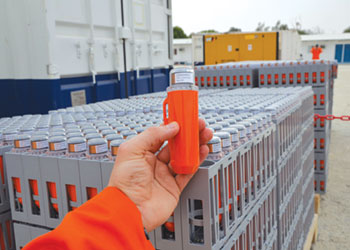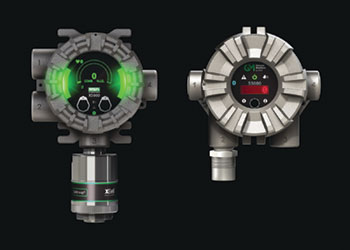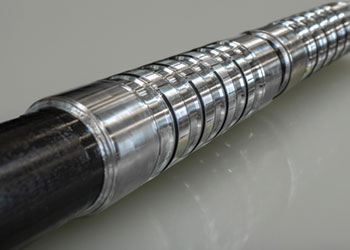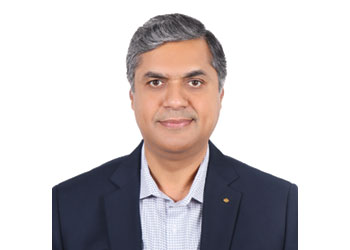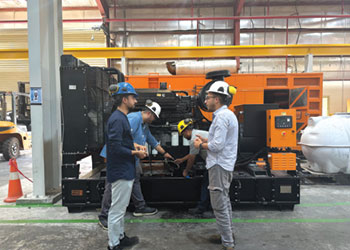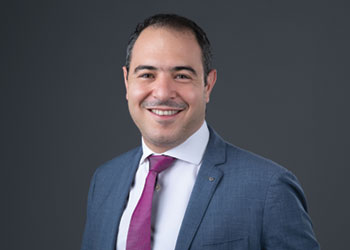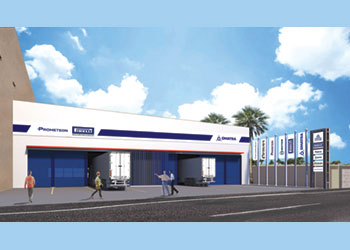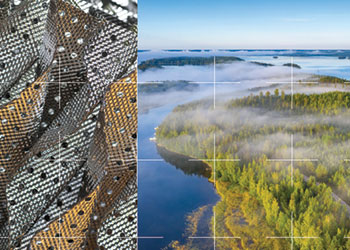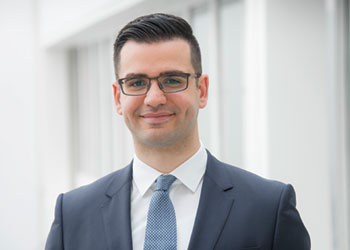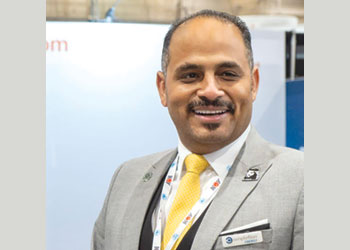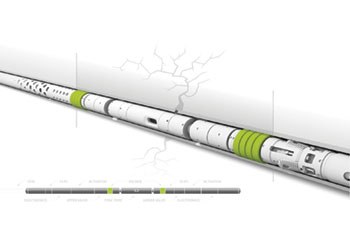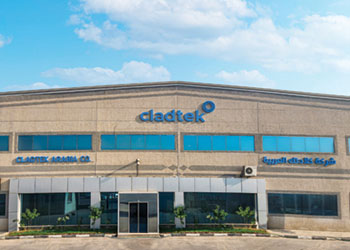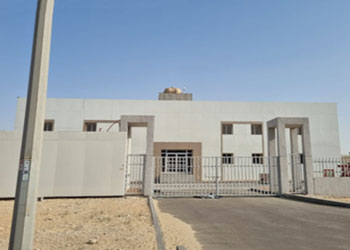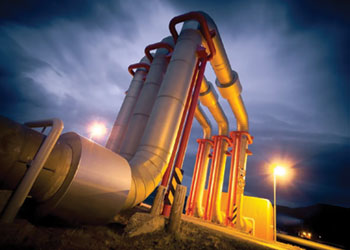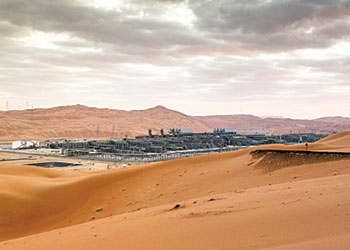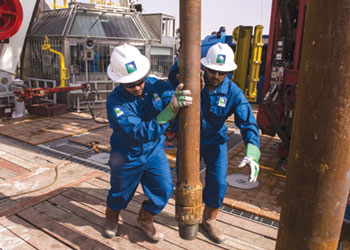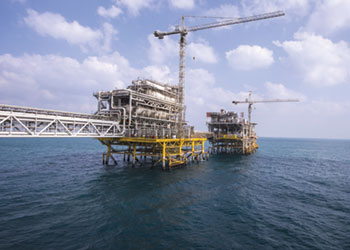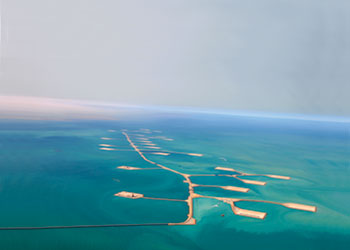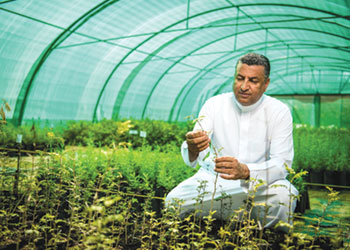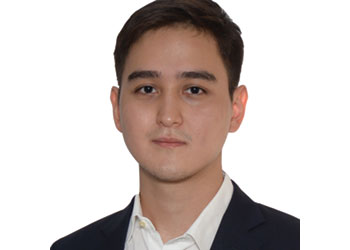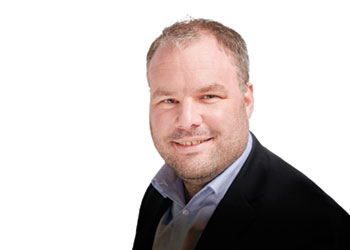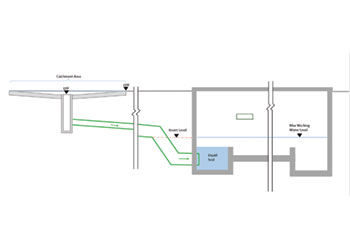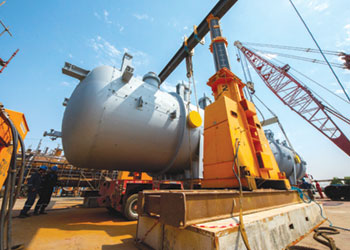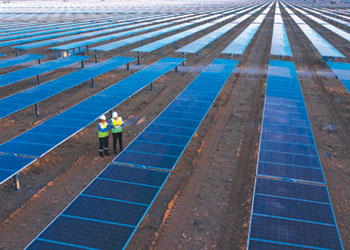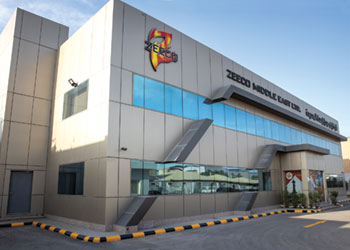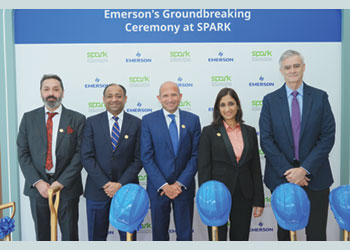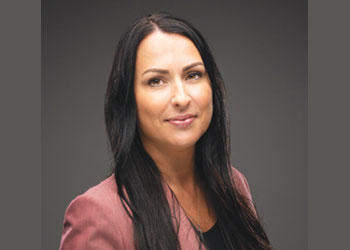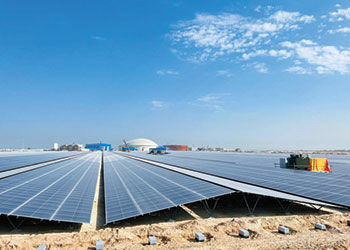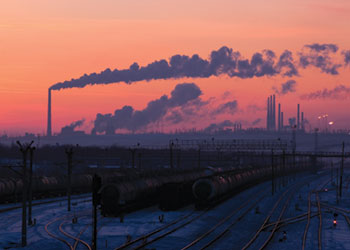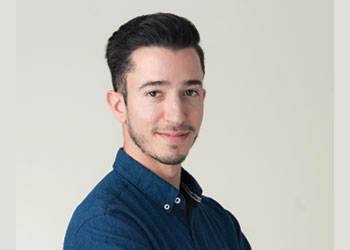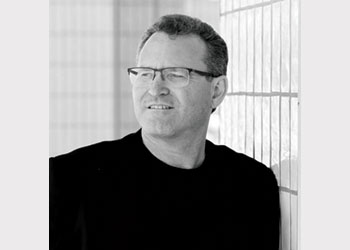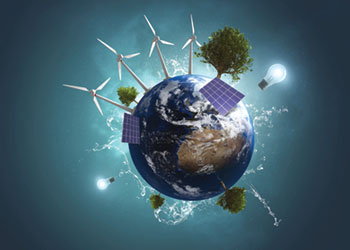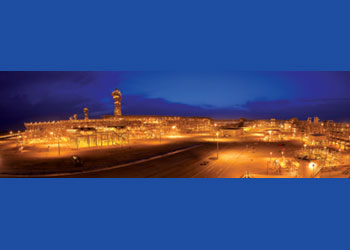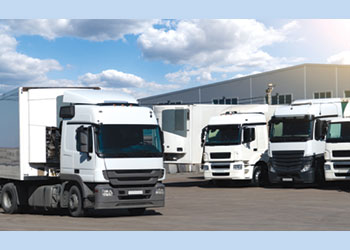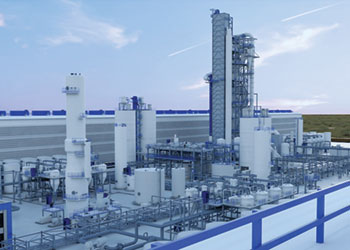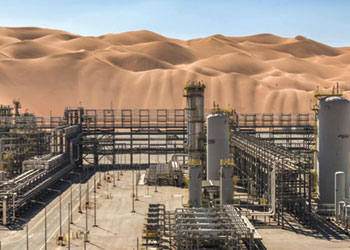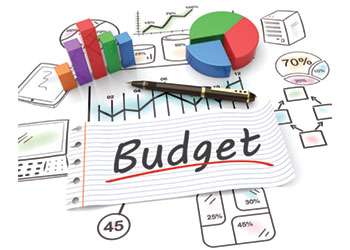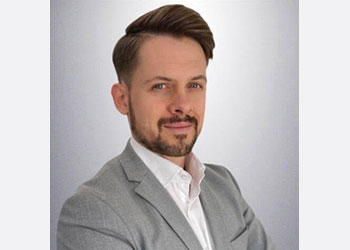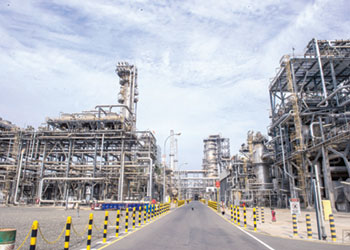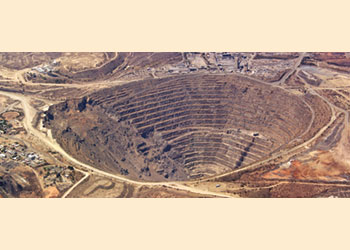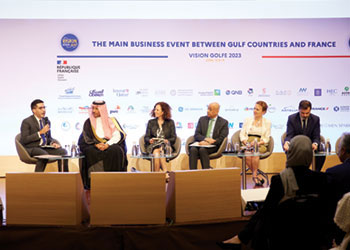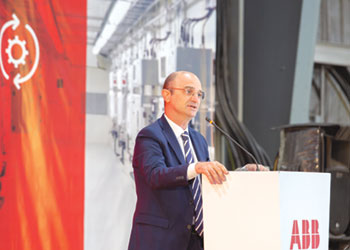
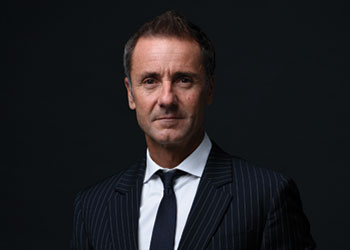 Berestos ... futuristic thinking
Berestos ... futuristic thinking
The company is building local capacities well ahead of demand and its new production plants will be modular, enabling agility in increasing captured carbon volumes within short periods and at loAw investments, George Berestos tells OGN
In anticipation of increasing demand for industrial CO2 and the race to meet Saudi Arabia’s net-zero goals, Gulf Cryo is investing heavily in carbon capture plants in the Kingdom. The home-grown decarbonisation champion is building capacities well ahead of demand, and its new local production plants will be modular, enabling agility in increasing captured carbon volumes for the Saudi market within short periods and at low investment.
This forms a key part of Gulf Cryo’s localisation strategy, which also includes the skill development of young Saudis and creating green jobs. In an exclusive interview, George Berestos, CCO of Gulf Cryo, tells OGN energy magazine how the company is taking on these challenges.
• How has investing and producing locally helped local operations?
Localisation of operations help on several fronts. Every country is looking to increase its economy’s security and be less dependent especially in core sectors like food, health, energy and water. Localisation helps secure these sectors while it boosts the entire supply chain and increases job opportunities.
Secondly, local investments and local production improve supply reliability for our customers in the Kingdom and contributes to a sustainable supply chain.
 |
Gulf Cryo is expanding both production volumes and offerings |
There are many benefits on a national level as well. We are directly contributing to the decarbonisation of local industries by capturing locally emitted CO2 and, therefore, we are actively contributing in achieving the Kingdom’s 2030 Vision and net-zero targets.
Another benefit is that localisation of production develops specialised skills within the local young generations.
• With increasing pressure to reduce emissions, the need for capturing CO2 is going to grow. How is Gulf Cryo responding to those calls and needs?
Gulf Cryo adopted the green agenda in its strategy at a very early stage and took the risk to invest in the first carbon capture plant in Kuwait in 2014. After several capacity expansions, the total produced volume reached 100,000 metric tons (MT) per annum.
Responding to the Kingdom’s net-zero target and carbon reduction, two additional mega carbon capture plants are under construction: One for Petro Rabigh, Aramco and Sumitomo’s petrochemical joint venture; and the second for Ma’aden, the largest mining company in the MEA region.
These plants are due to open in 2023 and 2024, respectively, tripling Gulf Cryo’s carbon capture capacity to 300,000 MT per annum by 2024. Furthermore, Gulf Cryo is planning is to exceed a total capacity of 500,000 MT captured CO2 by 2030.
• Is the volume of captured carbon currently exceeding demand or is it the other way round?
The current CO2 industrial demand for conventional applications, such as beverage, food and manufacturing is largely covered by the existing production plants. But this is not enough to utilise all captured CO2 emissions. So, we will continue developing the CO2 market by introducing new utilisation technologies that will absorb the invested plant capacities.
Also, Gulf Cryo is building capacities well ahead of demand and the new production plants will be modular, enabling agility in increasing the volumes of carbon capture within a very short period and with low additional investments.
To add to this, Gulf Cryo is announcing the first Technology and Application Center at King Salman Energy Park (SPARK) that will focus on new technologies for carbon capture, utilisation and industry decarbonisation.
• What are the challenges of establishing robust supply chains?
Seasonality is the main challenge in the CO2 business. To address that, Gulf Cryo is strategically locating additional CO2 production plants close to end users and in potential growing regions across the Middle East. It builds and operates large storage/distribution hubs and engages the biggest distribution fleet.
• What is Gulf Cryo’s strategy for growth in the region?
With a focus on the Middle East Region, Gulf Cryo has announced new and large production plants in Saudi Arabia, the UAE and Kuwait, targeting localisation and sustainable supply chains.
We are heavily expanding our gases production capacity and are creating more localised and circular economies in the countries we operate in.
This means we will be closer to our customers and will be able to better service them. It also means we are answering the main pillars of a healthy ecosystem — localisation and sustainability — and supporting the local economy.
We are applying the same strategy — localisation and sustainability — to our decarbonisation solutions and initiatives, and are ensuring proactive contribution to meeting the net-zero targets of our region.
• What is the progress on the carbon capture plant agreement signed with Ma’aden last year?
The Ma’aden investment project of a new mega CO2 capture plant and a large air separation plant is on schedule and expected to be operational by mid-2024. The plants are currently being constructed in Europe and installation will start early 2024.
Furthermore, Gulf Cryo is the first gas supplier investing in the Ras Al Khair industrial cluster, having signed a 20-year supply contract with International Maritime Industries (IMI) — the anchor investment within King Salman Complex for Maritime Industries — by installing a gas storage and supply hub. The CO2 captured at Ma’aden plant will be reused at IMI for the shipyard’s operational requirements.
• In what capacity will Gulf Cryo participate in COP28 in Dubai?
Gulf Cryo Group will be present at COP28 event as an active member of The International Renewable Energy Agency’s (IRENA) Alliance for Industries Decarbonisation (AFID).
In fact, we are members in two key working groups related to CCUS and green H2. In addition, we are developing white papers covering guidelines for policies and regulations, as well as recommendations in order to accelerate the successful implementation of decarbonisation roadmaps on a regional and local levels.
• Gulf Cryo was well ahead of its time when it started CO2 production, and it's now a front-runner. How has that head start helped the company?
Gulf Cryo's early entry into the CO2 production industry has indeed positioned it as a front-runner in the field. The advantages of its head start can be seen through various factors that have contributed to the company's continuous success.
Being one of the early players in the CO2 production industry has allowed Gulf Cryo to establish a strong genuine market presence.
It has also gave the company the opportunity to build solid long-term relationships with a wide portfolio of customers and partners.
And it has provided us years of experience and expertise in the whole CO2 value chain ranging from production processes to distribution and downstream applications.
In addition, being an early mover, our group has built brand recognition and reputation attracting customers and investors trusting our company with a longer track record.
• What is next in your plans: Expanding offerings or expanding volume?
We are expanding both production volumes and offerings; volumes through the new carbon capture plants, and offerings by creating innovative utilisation for the abundant CO2 in the atmosphere.
At Gulf Cryo, we are developing innovative CO2 solutions through strategic technological partnerships with international companies and start-ups contributing to decarbonising various industries as water, building materials, agriculture and many other industrial sectors.
Maintaining our leadership position is the fruit of continuous innovation, adaptation to changing market dynamics, and a continued focus on delivering value to customers.
• What is your view on localisation as a key agenda in Vision 2030?
Economic diversification and localisation are key for the Kingdom’s growth and we certainly support the Kingdom’s vision.
Gulf Cryo participates in all localisation initiatives as IKTVA and local content. We have proactively invested to localise our production and are increasingly localising our supply chain in support of the Saudi economic and sustainable goals.
We are recruiting local talents and are developing them with internal and external trainings. We are actively cooperating with universities and research centres to innovate in the sustainable solutions for gases.
• How do you think localisation of goods and services will raise their competitiveness and create sustainable job opportunities?
The region in general relies heavily on imports in all sectors. To be able to have a more robust economy, a more localised and diversified approach needs to be set in place, and this is what is happening at the moment.
This, of course, cultivates a more resilient supply chain, reduces transportation costs, increases competitiveness and thus reduces costs and market prices.
In the instance of CO2, a more affordable CO2 price will bring more incentives for downstream-recovered CO2 utilisation, therefore, leading for an upscaling of the local clean CO2 market size. The CO2 business growth will definitely lead to creating more local job opportunities.
In this regard, Gulf Cryo’s upcoming Technology and Application Center’s key scope shall include fostering mentorship and educational training for young generations and shaping the future by anticipating upcoming challenges and needs.
Our ambitious initiative seeks to empower young people and create opportunities in green jobs aligned with climate actions.
• While localisation efforts will help provide job opportunities, will it raise the quality and standard of the workforce?
I wouldn’t call it quality and standard; it is about developing expertise and excellence. Gases are a necessity in most industries and the workforce must be very skilled to provide this intricate component. And our Technology and Application Center will be the main hub for developing skills and competences young local talents.
• How is the government enforcing localisation and decarbonisation initiatives in the Kingdom?
The government of Saudi Arabia has been actively promoting localisation efforts especially in strategic sectors such as healthcare, clean energy and manufacturing, as part of its economic diversification and development strategy in line with Vision 2030.
Similarly, decarbonising industries has been well identified as a key component of the Kingdom’s national goals, and implementing regulations and policies would put further pressure on industries to decarbonise; it is quite a necessity. At the end of the day, global warming will not be solved with government actions alone. Every company and individual on this planet must play their role too.
By Abdulaziz Khattak







































































